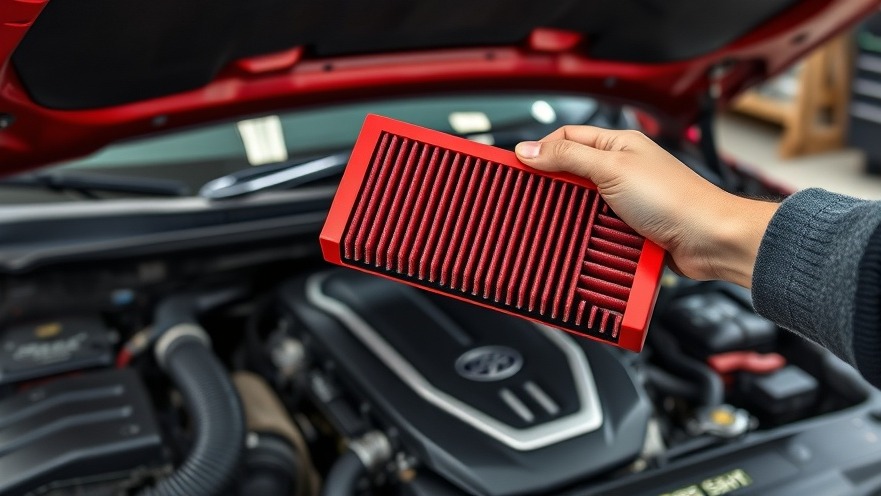
Understanding the Gas-Saving Myths that Cost You Money
Many drivers are unknowingly wasting money at the pump due to long-standing myths about gas savings. The recent video titled 15 Gas Saving LIES Wasting Your Money EXPOSED! takes a deep dive into 15 popular myths that could be hurting our wallets, and it begs the question: how do we discern fact from fiction when it comes to saving on gas? In this article, we’ll explore these myths and provide actionable tips to keep your wallet intact while gaining clarity on vehicle maintenance.
In 15 Gas Saving LIES Wasting Your Money EXPOSED!, the discussion dives into common myths surrounding fuel efficiency, showcasing key insights that sparked deeper analysis on our end.
Myth 1: Premium Gas Equals Better Mileage
One of the biggest misconceptions revolves around premium gasoline. Many drivers believe that using premium gas will increase their car's performance and fuel efficiency. However, as noted in the video, the reality is that for 87% of vehicles, there is no difference in fuel economy when using premium versus regular gas. Unless your car specifically requires premium fuel, you're likely wasting $50 to $100 annually by opting for the more expensive option. Focus instead on using the fuel recommended in your owner’s manual.
Myth 2: Idling is Better Than Restarting
The second myth involves the perception that letting your engine idle is more fuel-efficient than shutting it off and restarting. This outdated belief can cost you significantly. Modern vehicles are designed to restart efficiently, burning more fuel during an extended idle than when restarting. If you're parked for more than 30 seconds, it's more economical to turn off your engine and restart when you're ready to go. This simple change can lead to savings of around $4 per week or more than $200 annually.
Myth 3: Fuel Additives Improve Mileage
Many drivers think that adding a fuel additive can boost their mileage. However, the video reveals that 99% of fuel additives are ineffective, with tests showing near zero improvement in fuel economy. Instead of relying on magic potions, keep your fuel system maintained with regular check-ups, clean injectors, and necessary replacements like spark plugs. Maintenance is key to efficient fuel use.
Future Insights: The Importance of Proper Maintenance
As fuel prices fluctuate and fuel-efficient technologies evolve, maintaining your vehicle will become increasingly crucial. The video highlights the significance of regular maintenance over gimmicks. Practicing good maintenance habits not only saves you money at the pump but also extends the life of your vehicle. Keeping your tires adequately inflated, changing air filters when necessary, and following routine service schedules could potentially save you hundreds each year.
Common Misconceptions About Fuel Efficiency
One of the reasons people fall for these myths is due to the mixing of truths and half-truths. For instance, many believe that drafting behind trucks can save fuel, but this dangerous practice poses significant risks without yielding much benefit. Instead, it's essential to focus on safe driving habits that genuinely save fuel, such as smooth acceleration and maintaining a consistent speed.
Real Strategies for Saving Fuel
In addition to dispelling myths, the video suggests practical strategies for actual savings. One of the most effective ways to save gas on longer trips is to use cruise control, which helps maintain a steady speed and enhances fuel efficiency. By implementing this simple practice, drivers can see fuel savings of 7 to 14%. Another helpful strategy is refraining from topping off your gas tank, which could lead to costly repairs.
The Final Myth: Eco Mode’s Limited Effects
Lastly, eco mode settings in cars are often overrated in their perceived ability to save fuel. While it may help some drivers with aggressive acceleration habits, relying solely on eco mode won't make a significant impact on your overall fuel economy. Instead, drivers should concentrate on proper driving techniques for significant savings.
Now that we're more informed about the myths that could be draining our wallets, it's time to take action. Remember, each fuel-saving strategy discussed can bring about substantial savings over time. Focus on genuine maintenance recommendations rather than myths, keeping your spending in check and your engine running smoothly.
Want to stay informed about more tips and tricks that could save you money on your next service? Don't hesitate to follow for more insights and honest advice.
 Add Row
Add Row  Add
Add 




Write A Comment